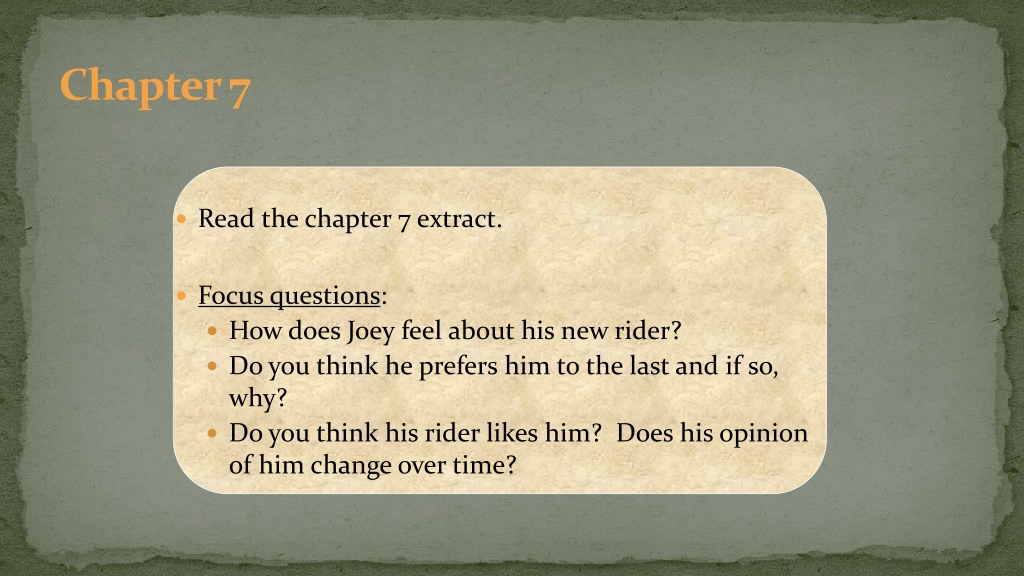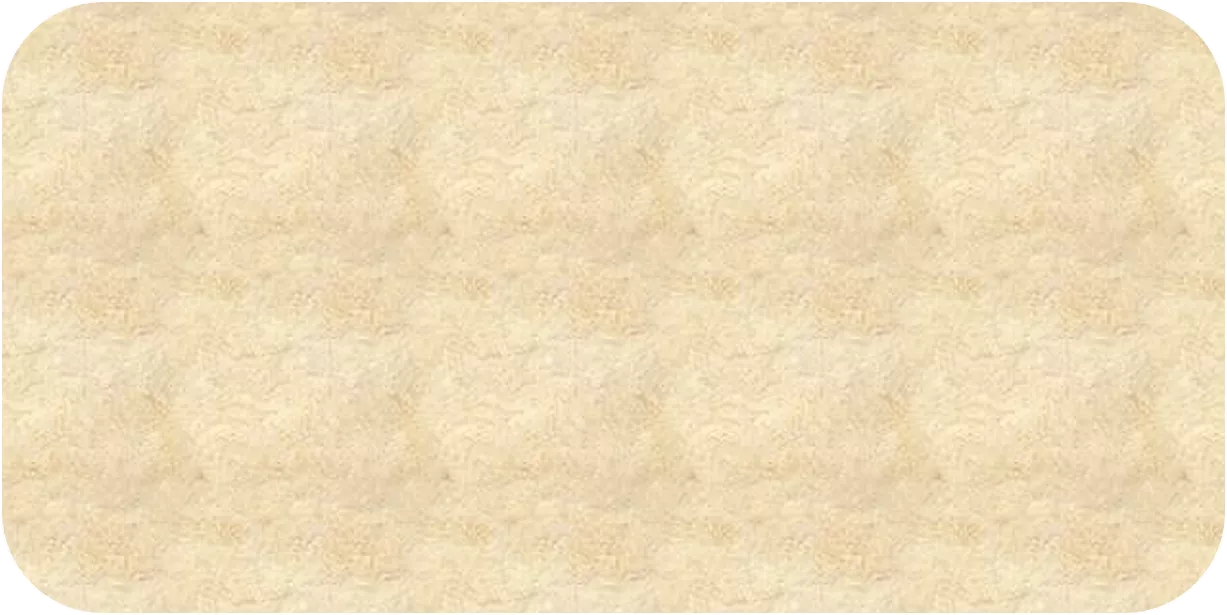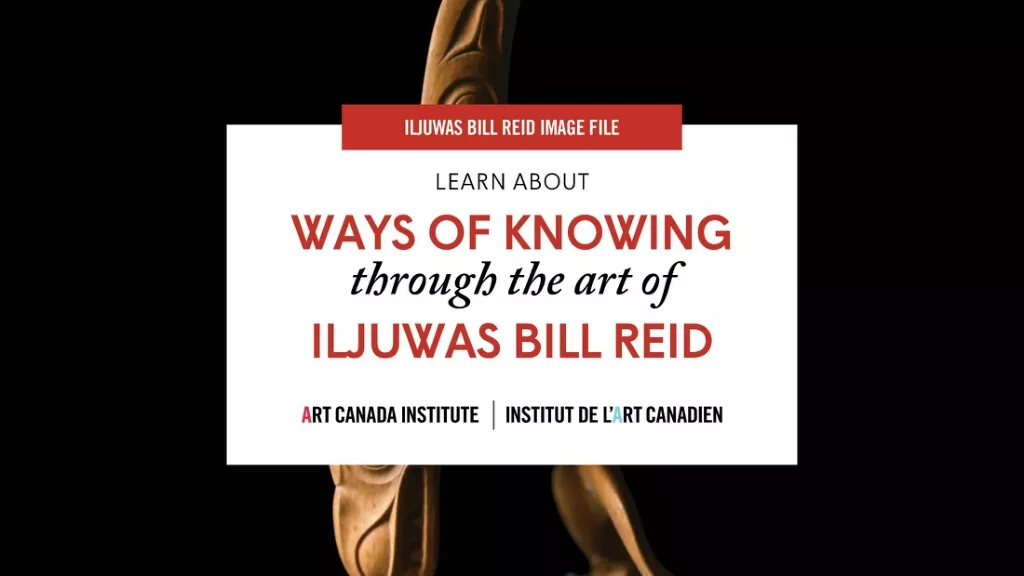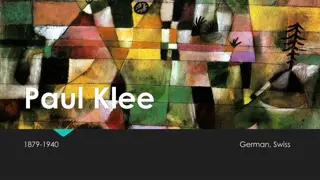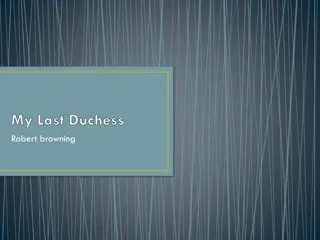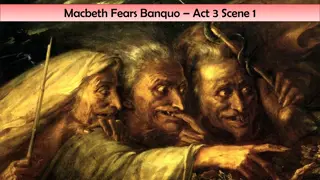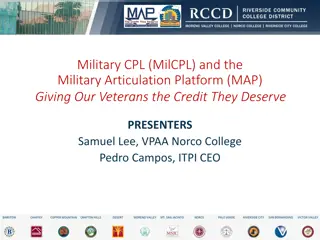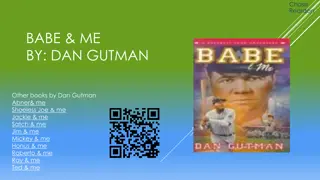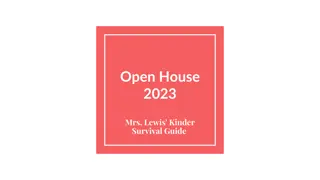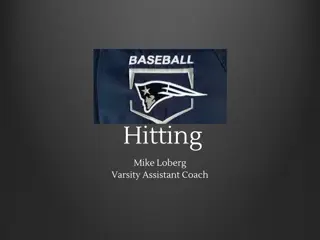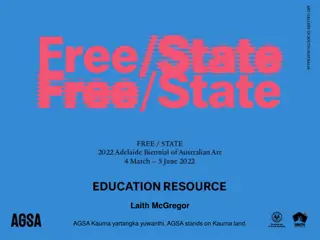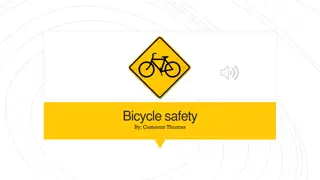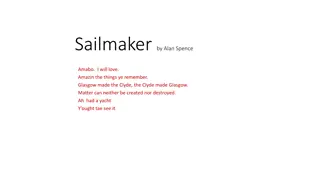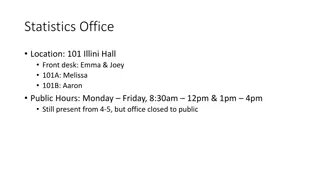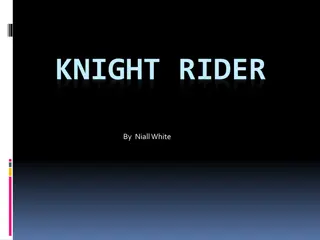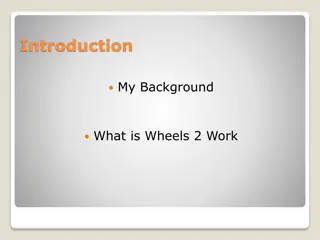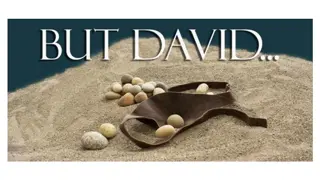Joey's Journey with His New Rider
Joey, a horse, experiences a change in riders during war. Initially feeling hesitant about Trooper Warren, Joey later appreciates his care and gentleness despite his lack of riding experience. Their bond grows as Trooper Warren shares his background with Joey. Through marches and conversations, their relationship deepens, showing the impact of mutual understanding and empathy in challenging times.
Uploaded on Sep 18, 2024 | 0 Views
Download Presentation

Please find below an Image/Link to download the presentation.
The content on the website is provided AS IS for your information and personal use only. It may not be sold, licensed, or shared on other websites without obtaining consent from the author. Download presentation by click this link. If you encounter any issues during the download, it is possible that the publisher has removed the file from their server.
E N D
Presentation Transcript
Chapter 7 Read the chapter 7 extract. Focus questions: How does Joey feel about his new rider? Do you think he prefers him to the last and if so, why? Do you think his rider likes him? Does his opinion of him change over time?
CHAPTER 7 IT WAS JUST after reveille the next morning and we were rummaging around in our nosebags for the last of our oats, when I saw Captain Jamie Stewart striding along the horselines towards us. Behind him, swamped in a vast greatcoat and a peaked cap, trailed a young trooper I had never seen before. He was pinkfaced and young under his hat and reminded me at once of Albert. I sensed that he was nervous of me, for his approach was hesitant and reluctant. Captain Stewart felt Topthorn s ears and stroked his soft muzzle as he always did the first thing in the morning, and then reaching across he patted me gently on the neck. Well Trooper Warren, here he is, said Captain Stewart. Come closer Trooper, he won t bite. This is Joey. This horse belonged to the best friend I ever had, so you look after him, d you hear? His tone was firm but not unsympathetic. And Trooper, I shall be able to keep my eye on you all the time because these two horses are inseparable. They are the two best horses in the squadron, and they know it. He stepped closer to me and lifted my forelock clear of my face. Joey, he whispered. You take care of him. He s only a little lad and he s had a rough ride in this war so far. So when the squadron moved out of the wood that morning I found I could no longer walk alongside Topthorn as I had before with Captain Nicholls, but was now just one of the troop following behind the officers in a long column of troopers. But whenever we stopped to feed or drink Trooper Warren was careful to walk me over to where Topthorn stood so that we could be together. Trooper Warren was not a good horseman I could tell that the minute he mounted me. He was always tense and rode me heavy in the saddle like a sack of potatoes. He had neither the experience and confidence of Corporal Samuel Perkins nor the finesse and sensitivity of Captain Nicholls. He rocked unevenly in the saddle and rode me always on too tight a rein so that I was forced to toss my head continuously to loosen it. But once out of the saddle he was the gentlest of men. He was meticulous and kind in his grooming and attended at once to my frequent and painful saddle sores, chafings and windgalls to which I was particularly prone. He cared for me as no one had since I left home. Over the next few months it was his loving attention that was to keep me alive.
There were a few minor skirmishes during that first autumn of the war, but as Captain Nicholls had predicted, we were used less and less as cavalry and more as transport for mounted infantry. Whenever we came across the enemy the squadron would dismount, drawing their rifles from their buckets, and the horses would be left behind out of sight under the care of a few troopers, so that we never saw any action ourselves but heard the distant crackle of rifle-fire and the rattle of machineguns. When the troop returned and the squadron moved off again, there were always one or two horses without riders. We would be on the march for hours and days on end it seemed. Then suddenly a motorcycle would roar past us through the dust and there would be the barked commands and the shrill call of the bugles and the squadron would swing off the road and into action once more. It was during these long, stifling marches and during the cold nights that followed, that Trooper Warren began to talk to me. He told me how in the same action in which Captain Nicholls had been killed, he had had his horse shot down from beneath him and how only a few weeks before he had been an apprentice black-smith with his father. Then the war had broken out. He did not want to join up, he said; but the squire of the village had spoken to his father and his father, who rented his house and his smithy from the squire, had no option but to send him off to war, and since he had grown up around horses he volunteered to join the cavalry. I tell you, Joey, he said one evening as he was picking out my hooves, I tell you I never thought I would get on a horse again after that first battle. Strange thing is, Joey, that it wasn t the shooting, somehow I didn t mind that; it was just the idea of riding a horse again that terrified the life out of me. Wouldn t think that possible, would you? Not with me being a smithy and all. Still, I m over it now and you ve done that for me Joey. Given me back my confidence. Feel I can do anything now. Feel like one of those knights in armour when I m up on you. Then, with the onset of winter, the rain came down in sheets. It was refreshing at first and a welcome break from the dust and the flies, but soon the fields and paths turned to mud beneath us. The squadron could no longer bivouac in the dry for there was little enough shelter and so both man and horse were constantly soaked to the skin. There was little or no protection from the driving rain, and at night we stood now over our fetlocks in cold, oozing mud. But Trooper Warren looked after me with great devotion, finding shelter for me wherever and whenever he could, rubbing some warmth into me with whisps of dry straw whenever he could find it and ensuring that I always got a good ration of oats in my nosebag to keep me going. As the weeks passed his pride in my strength and stamina became obvious to everyone, as did my affection for him. If only, I thought, if only he could just groom me and care for me and someone else could ride me.
Chapter 8 Read the chapter 8 extract. Focus questions: How is this charge different from the last? How do you think Trooper Warren feels during the charge? How does Joey feel?
CHAPTER 8 FOR JUST A few short moments we moved forward at the trot as we had done in training. In the eerysilence of no man s land all that could be heard was the jingle of the harness and the snorting of the horses. We picked our way around the craters keeping our line as best we could. Up ahead of us at the top of a gentle sloping hill were the battered remnants of a wood and just below a hideous, rusting roll of barbed wire that stretched out along the horizon as far as the eye could see. Wire, I heard Trooper Warren whisper through his teeth. Oh God, Joey, they said the wire would be gone, they said the guns would deal with the wire. Oh my God! We were into a canter now and still there was no sound nor sight of any enemy. The troopers were shouting at an invisible foe, leaning over their horses necks, their sabres stretched out in front of them. I galvanised myself into a gallop to keep with Topthorn and as I did, so the first terrible shells fell amongst us and the machine guns opened up. The bedlam of battle had begun. All around me men cried and fell to the ground, and horses reared and screamed in an agony of fear and pain. The ground erupted on either side of me, throwing horses and riders clear into the air. The shells whined and roared overhead, and every explosion seemed like an earthquake to us. But the squadron galloped on inexorably through it all towards the wire at the top of the hill, and I went with them. On my back Trooper Warren held me in an iron grip with his knees. I stumbled once and felt him lose a stirrup, and slowed so that he could find it again. Topthorn was still ahead of me, his head up, his tail whisking from side to side. I found more strength in my legs and charged after him. Trooper Warren prayed aloud as he rode, but his prayers turned soon to curses as he saw the carnage around him. Only a few horses reached the wire and Topthorn and I were amongst them. There were indeed a few holes blasted through the wire by our bombardment so that some of us could find a way through; and we came at last upon the first line of enemy trenches, but they were empty. The firing came now from higher up in amongst the trees; and so the squadron, or what was left of it, regrouped and galloped up into the wood, only to be met by a line of hidden wire in amongst the trees. Some of the horses ran into the wire before they could be stopped, and stuck there, their riders trying feverishly to extract them. I saw one trooper dismount deliberately once he saw his horse was caught. He pulled out his rifle and shot his mount before falling dead himself on the wire. I could see at once that there was no way through, that the only way was to jump the wire and when I saw Topthorn and Captain Stewart leap over where the wire was lowest, I followed them and we found ourselves at last in amongst the enemy. From behind every tree, from trenches all around it seemed, they ran forward in their piked helmets to counter-attack. They rushed past us, ignoring us until we found ourselves surrounded by an entire company of soldiers, their rifles pointing up at us .
Chapter 9 Read the chapter 9 extract. Focus questions: How is Joey treated now he has been captured? Why do you think the Germans treat him this way? Why does the German officer have such a problem with Joey being used as a beast of burden?
CHAPTER 9 WE WERE LED away by two nervous soldiers down farm tracks, through orchards and across a bridge before being tied up beside a hospital tent some miles from where we had been captured. A knot of wounded soldiers gathered around us at once. They patted and stroked us and I began to whisk my tail with impatience. I was hungry and thirsty and angry that I had been separated from my Trooper Warren. Still no one seemed to know quite what to do with us until an officer in a long grey coat with a bandage round his head emerged from the tent. He was an immensely tall man standing a full head higher than anyone around him. The manner of his gait and the way he held himself indicated a man clearly accustomed to wielding authority. A bandage came down over one eye so that he had only half a face visible. As he walked towards us I saw that he was limping, that one foot was heavily bandaged and that he needed the support of a stick. The soldiers sprang back at his approach and stood stiffly to attention. He looked us both over in undisguised admiration, shaking his head and sighing as he did so. Then he turned to the men. There are hundreds like these dead out on our wire. I tell you, if we had had one jot of the courage of these animals we should be in Paris by now and not slugging it out here in the mud. These two horses came through hell-fire to get here they were the only two to make it. It was not their fault they were sent on a fool s errand. They are not circus animals, they are heroes, do you understand, heroes, and they should be treated as such. And you stand around and gawp at them. You are none of you badly wounded and the doctor is far too busy to see you at present. So, I want these horses unsaddled, rubbed down, fed and watered at once. They will need oats and hay, and a blanket for each of them, now get moving. The soldiers hurried away, scattering in all directions, and within a few minutes Topthorn and I were being lavished with all manner of clumsy kindness. None of them had handled a horse before it seemed, but that did not matter to us so grateful were we for all the fodder they brought us and the water. We lacked for nothing that morning, and all the time the tall officer supervised from under the trees, leaning on his stick. From time to time he would come up to us and run his hand along our backs and over our quarters, nodding his approval and lecturing his men on the finer points of horse breeding as he examined us. After a time he was joined by a man in a white coat who emerged from the tent, his hair dishevelled, his face pale with exhaustion. There was blood on his coat.
Headquarters phoned through about the horses, Herr Hauptmann, said the man in white. And they say I am to keep them for the stretcher cases. I know your views on the matter Hauptmann, but I m afraid you cannot have them. We need them here desperately, and the way things are going I fear we will need more. That was just the first attack there will be more to come. We expect a sustained offensive it will be a long battle. We are the same on both sides, once we start something we seem to have to prove a point and that takes time and lives. We ll need all the ambulance transport we can get, motorised or horse. The tall officer drew himself up to his full height, and bristled with indignation. He was a formidable sight as he advanced on the man in white. Doctor, you cannot put fine British cavalry horses to pulling carts! Any of our horse regiments, my own Regiment of Lancers indeed, would be proud, indeed overwhelmed to have such splendid creatures in their ranks. You cannot do it, Doctor, I will not permit it. Herr Hauptmann, said the doctor patiently he was clearly not at all intimidated. Do you really imagine that after this morning s madness that either side will be using cavalry again in this war? Can you not understand that we need transport, Herr Hauptmann? And we need it now. There are men, brave men, German and English lying out there on stretchers in the trenches and at present there s not enough transport to bring them back to the hospital here. Now do you want them all to die, Herr Hauptmann? Tell me that. Do you want them to die? If these horses could be hitched up to a cart they could bring them back in their dozens. We just do not have enough ambulances to cope, and what we do have break down or get stuck in the mud. Please, Herr Hauptmann. We need your help. The world, said the German officer, shaking his head, the world has gone quite mad. When noble creatures such as these are forced to become beasts of burden, the world has gone mad. But I can see that you are right. I am a lancer, Herr Doctor, but even I know that men are more important than horses. But you must see to it that you have someone in charge of these two who knows horses I don t want any dirty-fingered mechanic getting his hands on these two. And you must tell them that they are riding horses. They won t take kindly to pulling carts, no matter how noble the cause.
Chapter 10 Read the chapter 10 extract. Focus questions: The two horses don t actually win an Iron Cross but the soldier gives them his. Why do you think this is? What do you think of the new characters who are now looking after the horses?
CHAPTER 10 IF IT IS possible to be happy in the middle of a nightmare, then Topthorn and I were happy that summer. Every day we had to make the same hazardous journeys up to the front line which in spite of almost continuous offensives and counter-offensives moved only a matter of a few hundred yards in either direction. Hauling our ambulance cart of dying and wounded back from the trenches we became a familiar sight along the pitted track. More than once we were cheered by marching soldiers as they passed us. Once, after we had plodded on, too tired to be fearful, through a devastating barrage that straddled the road in front of us and behind us, one of the soldiers with his tunic covered in blood and mud, came and stood by my head and threw his good arm around my neck and kissed me. Thank you, my friend, he said. I never thought they would get us out of that hell-hole. I found this yesterday, and thought about keeping it for myself, but I know where it belongs. And he reached up and hung a muddied ribbon around my neck. There was an Iron Cross dangling on the end of it. You ll have to share it with your friend, he said. They tell me you re both English. I bet you are the first English in this war to win an Iron Cross, and the last I shouldn t wonder. The waiting wounded outside the hospital tent clapped and cheered us to the echo, bringing doctors, nurses and patients running out of the tent to see what there could be to clap about in the midst of all this misery. But it was the evenings of that summer that stay so strong in my memory. Often it would not be until dusk that we would clatter into the yard; and there, always waiting by the stable door would be the little girl and her grandfather who had come to us that first evening. The orderlies simply handed us over into their charge and that was just as well, for kind as they were they had no notion about horses. It was little Emilie and her grandfather who insisted that they should look after us. They rubbed us down and saw to our sores and bruises. They fed us, watered us and groomed us and somehow always found enough straw for a dry warm bed. Emilie made us each a fringe to tie over our eyes to keep the flies from bothering us, and in the warm summer evenings she would lead us out to graze in the meadow below the farmhouse and stayed with us watching us grazing until her grandfather called us in again. She was a tiny, frail creature, but led us about the farm with complete confidence, chatting all the while about what she had been doing all the day and about how brave we were and how proud she was of us
Chapter 11 Read the chapter 11 extract. Focus questions: The two horses aren t needed in the war any more, do you think that this will be the end of the story? What do you think of the new characters who are now looking after the horses?
CHAPTER 11 AND ALL WAS to stay well for a time at least. For the war suddenly moved away from us that spring. We knew it was not over for we could still hear distant thunder of the guns and the troops came marching through the farmyard from time to time up towards the line. But there were fewer wounded now to bring in and we were needed less and less to pull our ambulance cart back and forth from the trenches. Topthorn and I were put out to grass in the meadow by the pond most days, but the evenings were still cold with the occasional frost and our Emilie would always come to get us in before dark. She did not need to lead us. She had but to call and we followed. Emilie was still weak from her illness and coughed a great deal as she fussed around us in the stable. From time to time now she would heave herself up on to my back and I would walk so gently around the yard and out into the meadow with Topthorn following close behind. She used no reins on me, no saddle, no bits, no spurs, and sat astride me not as my mistress but rather as a friend. Topthorn was just that much taller and broader than me and she found it very difficult to mount him and even more difficult to get down. Sometimes she would use me as a stepping-stone to Topthorn, but it was a difficult manoeuvre for her and more than once she fell off in the attempt. But between Topthorn and me there was never any jealousy and he was quite content to plod around beside us and take her on board whenever she felt like it. One evening we were out in the meadow sheltering under the chestnut tree from the heat of the new summer sun when we heard the sound of an approaching convoy of lorries coming back from the front. As they came through the farm gate they called out to us and we recognised them as the orderlies, nurses and doctors from the field hospital. As the convoy stopped in the yard we galloped over to the gate by the pond and looked over. Emilie and her grandfather emerged from the milking shed and were deep in conversation with the doctor. Quite suddenly we found ourselves besieged by all the orderlies we had come to know so well. They climbed the fence and patted and smoothed us with great affection. They were exuberant yet some-how sad at the same time. Emilie was running over towards us shouting and screaming. I knew it would happen, she said. I knew it. I prayed for it to happen and it did happen. They don t need you any more to pull their carts. They re moving the hospital further up along the valley. There s a big, big battle going on up there and so they re moving away from us. But they don t want to take you with them. That kind doctor has told Grandpapa that you can both stay it s a kind of payment for the cart they used and the food they took and because we looked after you throughout all the winter. He says you can stay and work on the farm until the army needs you again and they never will, and if they ever did I d hide you. We ll never let them take you away, will we, Grandpapa? Never, never.
Chapter 12 Read the chapter 12 extract. Focus questions: What signs can you see that the war is getting harder and more desperate? How much has life changed for the horses?
CHAPTER 12 PERHAPS IT WAS the contrast with the few idyllic months we had spent with Emilie and her grandfather that made what followed so harsh and so bitter an experience for Topthorn and me; or perhaps it was just that the war was all the time becoming more terrible. In places now the guns were lined up only a few yards apart for miles and miles and when they sounded out their fury the very earth shook beneath us. The lines of wounded seemed interminable now and the countryside was laid waste for miles behind the trenches. The work itself was certainly no harder than when we had been pulling the ambulance cart, but now we were no longer stabled every night, and of course we no longer had the protection of our Emilie to rely on. Suddenly the war was no longer distant. We were back amongst the fearful noise and stench of battle, hauling our gun through the mud, urged on and sometimes whipped on by men who displayed little care or interest in our welfare just so long as we got the guns where they had to go. It was not that they were cruel men, but just that they seemed to be driven now by a fearful compulsion that left no room and no time for pleasantness or consideration either for each other or for us. Food was scarcer now. We received our corn ration only spasmodically as winter came on again and there was only a meagre hay ration for each of us. One by one we began to lose weight and condition. At the same time the battles seemed to become more furious and prolonged and we worked longer and harder hours pulling in front of the gun; we were permanently sore and permanently cold. We ended every day covered in a layer of cold, dripping mud that seemed to seep through and chill us to the bones. The gun team was a motley collection of six horses. Of the four we joined only one had the height and the strength to pull as a gun horse should, a great hulk of a horse they called Heinie who seemed quite unper-turbed by all that was going on around him. The rest of the team tried to live up to his example, but only Topthorn succeeded. Heinie and Topthorn were the leading pair, and I found myself in the traces behind Topthorn next to a thin, wiry little horse they called Coco. He had a display of white patch-marks over his face that often caused amusement amongst the soldiers as we passed by. But there was nothing funny about Coco he had the nastiest temper of any horse I had ever met, either before or since. When Coco was eating no one, neither horse nor man, ventured within biting or kicking distance.
Chapter 13 and 14 Read the chapter 13 and 14 extracts. Focus questions: As the war moves on, things get better again and we are introduced to Friedrich. How is he characterised? Why does everyone seem to like the horses?
CHAPTER 13 SO TOPTHORN CAME into that spring weakened severely by his illness and still with a husky cough, but he had survived. We had both survived. There was hard ground to go on now, and the grass grew once more in the fields so that out bodies began to fill out again, and our coats lost their winter raggedness and shone in the sun. The sun shone too on the soldiers, whose uniforms of grey and red stayed cleaner. They shaved more often now, and they began as they always did every spring to talk of the end of the war and about home and about how the next attack would finish it and how they would see their families again soon. They were happier and so they treated us that much better. The rations improved too with the weather and our gun-team stepped out with a new enthusiasm and purpose. The sores disappeared from our legs and we had full bellies each day, all the grass we could eat and oats in plenty. The two little Haflingers puffed and snorted behind us, and they shamed Topthorn and me into a gallop something we had not been able to achieve all winter no matter how hard our riders tried to whip us on. Our new-found health and the optimism of the singing, whistling soldiers brought us to a fresh sense of exhilaration as we rolled our guns along the pitted roads into position. But there were to be no battles for us that summer. There was always sporadic firing and shelling but the armies seemed content to growl at each other and threaten without ever coming to grips. Further away of course we heard the renewed fury of the spring offensive up and down the line, but we were not needed to move our guns and spent that summer in comparative peace some way behind the lines. Idleness, even boredom set in as we grazed the lush buttercup meadows and we even became fat for the first time since we came to war. Perhaps it was because we became too fat that Topthorn and I were chosen to pull the ammunition cart from the railhead some miles away up to the artillery lines, and so we found ourselves under the command of the kind old soldier who had been so good to us all winter. Everyone called him mad old Friedrich. He was thought to be mad because he talked continuously to himself and even when he was not talking he was laughing and chortling at some private joke that he never shared with anyone. Mad old Friedrich was the old soldier they set to work on tasks no one else wanted to do because he was always obliging and everyone knew it.
CHAPTER 14 SO FRIEDRICH RODE with us that autumn day when we went to war again. The gun troop was resting at midday under the welcome shade of a large chestnut wood that covered both banks of a silver glinting river that was full of splashing, laughing men. As we moved in amongst the trees and the guns were unhitched, I saw that the entire wood was crowded with resting soldiers, their helmets, packs and rifles lying beside them. They sat back against the trees smoking, or lay out flat on their backs and slept. As we had come to expect, a crowd of them soon came over to fondle the two golden Haflingers, but one young soldier approached Topthorn and stood looking up at him, his face full of open admiration. Now there s a horse, he said, calling his friend over. Come and look at this one, Karl. Have you ever seen a finer looking animal? He has the head of an Arab. You can see the speed of an English thoroughbred in his legs and the strength of a Hanoverian in his back and in his neck. He has the best of everything, and he reached up and gently rubbed his fist against Topthorn s nose. Don t you ever think about anything else except horses, Rudi? said his companion, keeping his distance. Three years I ve known you and not a day goes by without you going on about the wretched creatures. I know you were brought up with them on your farm, but I still can t understand what it is that you see in them. They are just four legs, a head and a tail, all controlled by a very little brain that can t think beyond food and drink. How can you say that? said Rudi. Just look at him, Karl. Can you not see that he s something special? This one isn t just any old horse. There s a nobility in his eye, a regal serenity about him. Does he not personify all that men try to be and never can be? I tell you, my friend, there s divinity in a horse, and specially in a horse like this. God got it right the day he created them. And to find a horse like this in the middle of this filthy abomination of a war, is for me like finding a butterfly on a dung heap. We don t belong in the same universe as a creature like this. To me the soldiers had appeared to become younger as the war went on, and certainly Rudi was no exception to this. Under his short cropped hair that was still damp from wearing his helmet, he looked barely the same age as my Albert as I remembered him. And like so many of them now he looked, without his helmet, like a child dressed up as a soldier.
Chapter 15 Read the chapter 15 extract. Focus questions: How does the author create a sense of fear from Joey in his experiences with the Tanks and the guns? What techniques of SPAMROD can you see?
Chapter 15 Although at the time I did not know it as such, the first tank I ever saw came over the rise of the hill with the cold light of dawn behind it, a great grey lumbering monster that belched out smoke from behind as it rocked down the hillside towards me. I hesitated only for a few moments before blind terror tore me at last from Topthorn s side and sent me bolting down the hill towards the river. I crashed into the river without even knowing whether I should find my feet or not and was half-way up the wooded hill on the other side before I dared stop and turn to see if it was still chasing me. I should never have looked, for the one monster had become several monsters and they were rolling inexorably down towards me, already past the place where Topthorn lay with Friedrich on the shattered hillside. I waited, secure, I thought, in the shelter of the trees and watched the tanks ford the river before turning once more to run. I ran I knew not where. I ran till I could no longer hear that dreadful rattle and until the guns seemed far away. I remember crossing a river again, galloping through empty farmyards, jumping fences and ditches and abandoned trenches, and clattering through deserted, ruined villages before I found myself grazing that evening in a lush, wet meadow and drinking from a clear, pebbly brook. And then exhaustion finally overtook me, sapped the strength from my legs and forced me to lie down and sleep. When I woke it was dark and the guns were firing once more all around me. No matter where I looked it seemed, the sky was lit with the yellow flashes of gun-fire and intermittent white glowing lights that pained my eyes and showered daylight briefly on to the countryside around me. Whichever way I went it seemed it had to be towards the guns. Better therefore I thought to stay where I was. Here at least I had grass in plenty and water to drink. I had made up my mind to do just that when there was an explosion of white light above my head and the rattle of a machine-gun split the night air, the bullets whipping into the ground beside me. I ran again and kept running into the night, stumbling frequently in the ditches and hedges until the fields lost their grass and the trees were mere stumps against the flashing skyline. Wherever I went now there were great craters in the ground filled with murky, stagnant water.
Chapter 17 and 18 Read the chapter 17 and 18 extracts. Focus questions: Joey is seriously injured and taken to a field hospital where he is reunited with Albert, but he doesn t get better. How does the author build tension and suspense over whether Joey will survive, and do you think he will?
CHAPTER 17 IT WAS ONLY with the greatest difficulty that I stayed standing on my three good legs in the veterinary wagon that carried me that morning away from the heroic little Welshman who had brought me in. A milling crowd of soldiers surrounded me to cheer me on my way. But out on the long rattling roads I was very soon shaken off my balance and fell in an ungainly, uncomfortable heap on the floor of the wagon. My injured leg throbbed terribly as the wagon rocked from side to side on its slow journey away from the battle front. The wagon was drawn by two stocky black horses, both well groomed out and immaculate in well-oiled harness. Weakened by long hours of pain and starvation I had not the strength even to get to my feet when I felt the wheels below me running at last on smooth cobblestones and the wagon came to a jerking standstill in the warm, pale autumn sunshine. My arrival was greeted by a chorus of excited neighing and I raised my head to look. I could just see over the sideboards a wide, cobbled courtyard with magnificent stables on either side and a great house with turrets beyond. Over every stable-door were the heads of inquisitive horses, ears pricked. There were men in khaki walking everywhere, and a few were running now towards me, one of them carrying a rope halter. Unloading was painful, for I had little strength left and my legs had gone numb after the long journey. But they got me to my feet and walked me backwards gently down the ramp. I found myself the centre of anxious and admiring attention in the middle of the courtyard, surrounded by a cluster of soldiers who inspected minutely every part of me, feeling me all over. What in thunder do you think you re about, you lot? came a booming voice echoing across the court-yard. It s an orse. It s an orse just like the others. A huge man was striding towards us, his boots crisp on the cobbles. His heavy red face was half hidden by the shade of his peaked cap that almost touched his nose and by a ginger moustache that spread upwards from his lips to his ears. It may be a famous orse. It may be the only thundering orse in the ole thundering war brought in alive from no man s land. But it is only an orseand a dirty orseat that. I ve had some rough looking specimens brought in here in my time, but this is the scruffiest, dirtiest, muddiest orse I have ever seen. He s a thundering disgrace and you re all stood about looking at him. He wore three broad stripes on his arm and the creases in his immaculate khaki uniform were razor sharp. Now there s a hundred or more sick orses ere in this ospital and there s just twelve of us to look after them. This ere young layabout was detailed to look after this one when he arrived, so the rest of you blighters can get back to your duties. Move it, you idle monkeys, move it! And the men scattered in all directions, leaving me with a young soldier who began to lead me away towards a stable. And you, came that booming voice again. Major Martin will be down from the ouse in ten minutes to examine that orse. Make sure that orse is so thundering clean and thundering shiny so s you could use him as a shaving mirror, right?
CHAPTER 18 IN THE EUPHORIC days that followed our reunion, the nightmare I had lived through seemed to fade into unreality, and the war itself was suddenly a million miles away and of no consequence. At last there were no guns to be heard, and the only vivid reminder that suffering and conflict was still going on were the regular arrivals of the veterinary wagons from the front. Major Martin cleaned my wound and stitched it up; and though at first I could still put little weight on it, I felt in myself stronger with every day that passed. Albert was with me again, and that in itself was medicine enough; but properly fed once more with warm mash each morning and a never ending supply of sweet-scented hay, my recovery seemed only a matter of time. Albert, like the other veterinary orderlies, had many other horses to care for, but he would spend every spare minute he could find fussing over me in the stable. To the other soldiers I was something of a celebrity, so I was scarcely ever left alone in my stable. There always seemed to be one or two faces looking admiringly over my door. Even old Thunder, as they called the sergeant, would inspect me over zealously, and when the others were not about he would fondle my ears and tickle me under my throat saying, Quite a boy, aren t you? Thundering fine horse if ever I saw one. You get better now, d you hear? But time passed and I did not get better. One morning I found myself quite unable to finish my mash and every sharp sound, like the kick of a bucket or the rattle of the bolt on the stable door, seemed to set me on edge and made me suddenly tense from head to tail. My forelegs in particular would not work as they should. They were stiff and tired, and I felt a great weight of pain all along my spine, creeping into my neck and even my face. Albert noticed something was wrong when he saw the mash I had left in my bucket. What s the matter with you, Joey? he said anxiously, and he reached out his hand to stroke me in the way he often did when he was concerned. Even the sight of his hand coming towards me, normally a welcome sign of affection, struck an alarm in me, and I backed away from him into the corner of the stable. As I did so I found that the stiffness in my front legs would hardly allow me to move. I stumbled backwards, falling against the brick wall at the back of the stable, and leaning there heavily. I thought something was wrong yesterday, said Albert, standing still now in the middle of the stable. Thought you were a bit off colour then. Your back s as stiff as a board and you re covered in sweat. What the divil have you been up to, you old silly?
Chapter 20 Read the chapter 20 extract. Focus questions: But Joey does not die and survives the end of the war where he is sold at auction. How does the author create a sense of tension around the auction and to whom Joey will be sold?
Chapter 20 I was clearly much in demand for the bidding was swift to start with, but as the price rose I could see more heads shaking and very soon there seemed to be only two bidders left. One was old Thunder himself, who would touch the corner of his cap with his stick, almost like a salute, to make his bid; and the other was a thin, wiry little man with weasel eyes who wore on his face a smile so full of consummate greed and evil that I could hardly bear to look at him. Still the price moved up. At twenty-five, twenty-six. At twenty- seven. Twenty-seven I m bid. On my right. Twenty-seven I m bid. Any more please? It s against the sergeant there, at twenty-seven. Any more please? He s a fine young animal, as you see. Got to be worth a lot more than this. Any more please? But the sergeant was shaking his head now, his eyes looked down and acknowledged defeat. Oh God, no, I heard Albert whisper beside me. Dear God, not him. He s one of them, Joey. He s been buying all morning. Old Thunder says he s the butcher from Cambrai. Please God, no. Well then, if there are no more bids, I m selling to Monsieur Cirac of Cambrai at twenty-seven English pounds. Is that all? Selling then for twenty-seven. Going, going . . . Twenty-eight, came a voice from amongst the buyers, and I saw a white haired old man leaning heavily on his stick, shuffle slowly forward through the buyers until he stood in front of them. I m bidding you twenty-eight of your English pounds, said the old man, speaking in hesitant English. And I ll bid for so long and so high as I need to, I advise you, sir, he said, turning to the butcher from Cambrai. I advise you not to try to bid me out. For this horse I will pay one hundred English pounds if I must do. No one will have this horse except me. This is my Emilie s horse. It is hers by right. Before he spoke her name I had not been quite sure that my eyes and ears were not deceiving me, for the old man had aged many years since I had last set eyes on him, and his voice was thinner and weaker than I remembered. But now I was sure. This was indeed Emilie s grandfather standing before me, his mouth set with grim determination, his eyes glaring around him, challenging anyone to try to outbid him. No one said a word. The butcher from Cambrai shook his head and turned away. Even the auctioneer had been stunned into silence, and there was some delay before he brought his hammer down on the table and I was sold.
Chapter 21 Read the chapter 21 extract. Focus questions: Joey is sold, but to the same old man that looked after him with Emilie on the farm. In what way would you call this a happy ending? How many of the other characters get a happy ending? Joey has had quite a journey throughout the war, but why does he deserve his happiness?
Chapter 21 He leant more heavily on his stick now with both hands. He spoke slowly, choosing his words carefully. Tommy, he went on. You are a farmer, a British farmer and you will understand that a farmer, whether he is British or French even a Belgian farmer never gives things away. He can never afford to. We have to live, do we not? Your Major and your Sergeant have told me how much you love this horse. They told me how every one of these men tried so hard to buy this horse. I think that is a noble thing. I think my Emilie would have liked that. I think she would understand, that she would want me to do what I will do now. I am an old man. What would I do with my Emilie s horse? He cannot grow fat in a field all his life, and soon I will be too old to look after him anyway. And if I remember him well, and I do, he loves to work, does he not? I have how you say? a proposition to make to you. I will sell my Emilie s horse to you. Sell? said Albert. But I cannot pay you enough to buy him. You must know that. We collected only twenty-six pounds between us and you paid twenty-eight pounds. How can I afford to buy him from you? You do not understand, my friend, the old man said, suppressing a chuckle. You do not understand at all. I will sell you this horse for one English penny, and for a solemn promise that you will always love this horse as much as my Emilie did and that you will care for him until the end of his days; and more than this, I want you to tell everyone about my Emilie and about how she looked after your Joey and the great black horse when they came to live with us. You see, my friend, I want my Emilie to live on in people s hearts. I shall die soon, in a few years, no more; and then no one will remember my Emilie as she was. I have no other family left alive to remember her. She will be just a name on a gravestone that no one will read. So I want you to tell your friends at home about my Emilie. Otherwise it will be as if she had never even lived. Will you do this for me? That way she will live for ever and that is what I want. Is it a bargain between us? Albert said nothing for he was too moved to speak. He simply held out his hand in acceptance; but the old man ignored it, put his hands on Albert s shoulders and kissed him on both cheeks. Thank you, he said. And then he turned and shook hands with every soldier in the unit and at last hobbled back and stood in front of me. Goodbye, my friend, he said, and he touched me lightly on my nose with his lips. From Emilie, he said, and then walked away. He had gone only a few paces before he stopped and turned around. Wagging his knobbly stick and with a mocking, accusing grin across his face, he said. Then it is true what we say, that there is only one thing at which the English are better than the French. They are meaner. You have not paid me my English penny, my friend. Sergeant Thunder produced a penny from the tin and gave it to Albert, who ran over to Emilie s grandfather. I shall treasure it, said the old man. I shall treasure it always.
